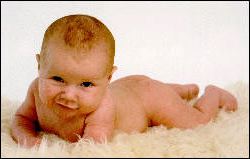Beyond Maiden, Mother, Crone
-The Fairytale Continues- |
 |
|
Beyond Maiden, Mother, Crone
|
|
"They got married and lived happily
ever after." |
|
A girl’s relationship to her parents, especially her mother, forms her expectations of what kind of adult she should become. Psychological theories abound, but whether you idolize your mother or have what feminist Adrienne Rich calls, “Matriphobia,” the fear of becoming like your mother, what’s certain is that she has an immeasurable influence on how you develop into an adult. This is undoubtedly part of why so many people are in therapy today. |
 |
The mother figure in our lives is our model for our conduct in the home and the world. To some extent, so are the mother figures portrayed in the media. How many of us had tea parties, made up of various friends—real or imagined—enacting the social ritual of sharing food and gossip? In makeup and plastic jewelry, we did our best to mock the grownups we saw in life or on television. But how realistic is this picture? I know my mother and her friends seldom had time to sit and chat, pinkie fingers pointed stiffly toward the air gripping a teacup, in a room with white carpeting. The closest it came was family gatherings, when they’d run each other over in the kitchen while the kids played and the men stood in a circle around the barbeque. The women would socialize while cleaning up spills and children, eating last, and then cleaning the house in a collective effort. |
Are these the only two choices? Our mothers tell us they want us to do better for ourselves than they did, but what does this entail? Having more children? Getting an education? “Marrying better” on the financial ladder? Climbing the financial ladder ourselves? Does it mean none of these? Does it mean all of these? For all her importance in shaping our perception, how supportive will she be if our idea of “better” differs from hers?
|
During motherhood, the pressure
to be perfect does not go away. Rather, a person’s children become
one more measure of their success. In addition to being youthful
and attractive all her life, a woman who is a mother also has to be wise,
protective, encouraging, disciplinary, cautious, adventurous, suspicious,
trustful, and a million other contradictions simultaneously in order to
raise a functional, well-adjusted human being in addition to herself.
In a sense, you are a large component in the assembly line of producing
a quality product. A complicated, individual, (possibly stubborn)
human product. The mother-child relationship is paradoxical and,
in a sense, tragic. It requires the most intense love on the mother's
side, yet this very love must help the child grow away from the mother,
and to become fully independent.Often a mother’s hard work to provide
for her children goes unnoticed and unacknowledged, because sacrifice
is an accepted component to parenting: mothers and housewives are the
only workers who do not have regular time off. They are the vacationless
class. The rise in single-mother families means more women are raising
children without a husband’s help, complicating the job even more.
~Liz Leøn |
|